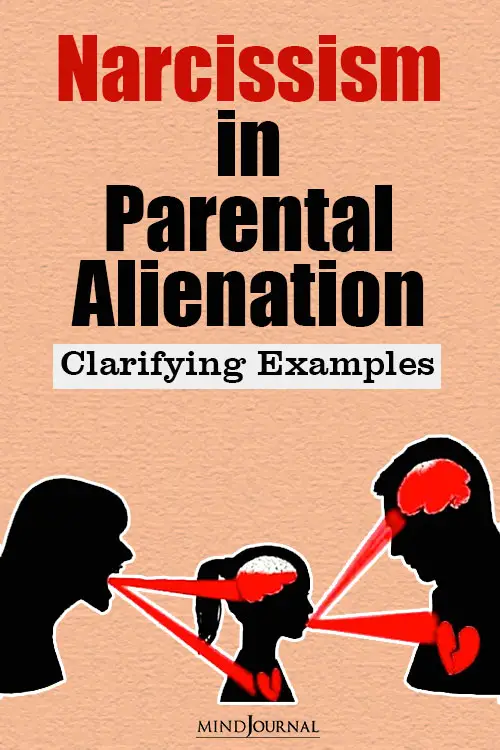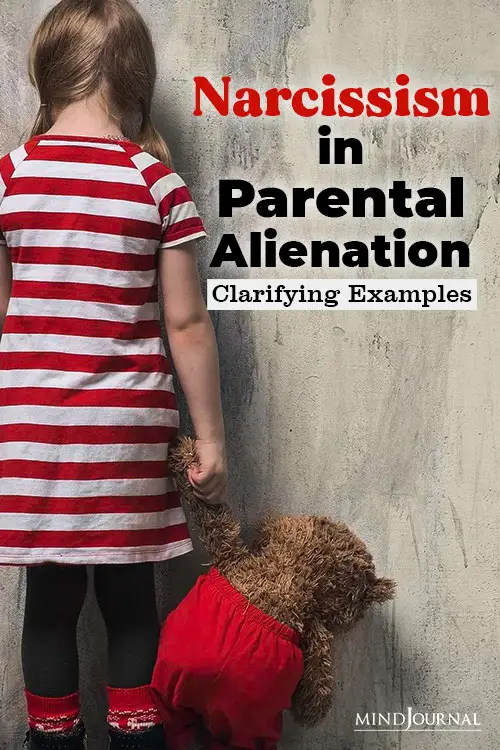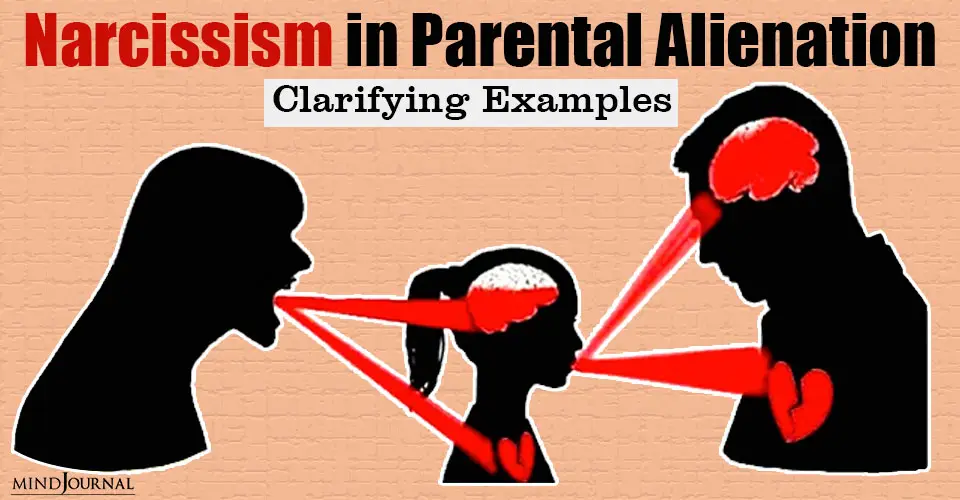Narcissism in Parental Alienation
Co-parenting with your ex after getting divorced can sometimes get tricky, and even more so if they are prime examples of narcissism and parental alienation. If your ex is indulging in the toxic practices of narcissism and parental alienation and is trying to destroy your relationship with your child, then it’s a huge cause for concern.
I recently received an email from a reader of my blog posts on parental alienation listing several examples of what he perceives as his ex’s narcissistic behaviors and attempts to alienate him from his child.
I’m sharing Jeffrey’s experience with my readers, with his permission, to help other parents—as well as lawyers and judges—to recognize narcissistic behaviors.
Examples of Narcissistic Behaviors in Parental Alienation
Narcissistic behavior occurs when a hyper-focus on one’s own beliefs, desires, and preferences overrides hearing or responding to others’ concerns.
Parental alienation describes attempts by one parent to turn children against and block the relationship with the other parent.
Here is Jeffrey’s story:
—At the end of our first trial, the judge dropped the contempt charges that my ex-wife had put on me. The judge also put in the new order that if I were to move closer to my child, I and my ex could talk about extending parenting time.
That is exactly what I did. I moved right down the street from my child. When I then wanted to talk about adjusting our parenting time, my ex refused. I was stunned.
—In video calls to my child, my ex would be there in the room with her. My child repeated over and over, looking at her mother, “I don’t want to talk to him.”
Then in court, my wife told the judge that she did not encourage her to talk to me because it stressed the child out. She was very convincing. The judge took away my parenting time and told me that if I call and my child refuses to talk to me, I have to end the call “in order not to stress the child out.”
Shortly after this judgment, I watched when my daughter went to play soccer for the first time. She was crying, “I don’t want to play soccer.” My child was even more stressed out than she had been when I was on the phone with her. Yet her mother encouraged her to stay and play soccer. Her mother would not encourage her to talk to me but would encourage her to play soccer. From my perspective, it was all about what her mother did and didn’t want, not at all about our child’s, or my, desires.
—I had arranged that in my parenting time my child and I would go on a vacation together. I informed the teacher in advance that my daughter would not be there Monday and Tuesday. My ex sent me a text message to inform me that she would be at the school on Monday to be a helper. I then informed her that our daughter would not be there.
I know that narcissistic people often get mad when they don’t get their way, but this was like talking to Dr. Jeckll and Mr. Hyde. She went off on me, screaming, “This is always about you and what you want.”
I didn’t react though because I remembered that her accusing me of selfishness could be seen as a perfect example of projection. She is the one who is totally selfish.
Related: THE NARCISSISTIC PARENT
—My daughter will not do simple things like changing her own clothes, using the bathroom, or sleeping in her own bed. She always asks for help. I am afraid that is how she gets her mother’s attention; otherwise, her mother is too focused on herself to pay attention to her.
—In my view, this narcissism thing has been going on since day one. At the hospital, just before my ex left with our child, she told me. “By the way, her last name is going to be my maiden name.” When I asked why, she said, “Because I can.”
—When my father had cancer and was nearing the end of his life, I sometimes had to miss my parenting times to take my father to cancer treatments. My ex would never switch my hours or allow makeup time. She had zero empathy for my father or me and never accommodated my situation.
—With $700 a month taken out of my check for child support, it has been hard to support myself, even living with my parents. Finally, I had to file for chapter 7 bankruptcy. I was behind on a lot of bills, including some of my daughter’s medical bills. My ex didn’t care. She just told me it’s my fault. Again, zero empathy for my situation. Instead of trying to be helpful, she filed charges against me for not paying the bills.
—When my daughter was 3 years old, I did a Google search using the name her mother had given her. I was shocked to find that my child had been baptized at a few months old. My ex never told me. Normal people discuss life events with the co-parent and invite them to share the moment. I would not have objected. I just want to be part of my daughter’s life. Again, zero regard for my concerns.
—We had to meet with a mediator to try to negotiate. My wife would not agree to any compromises. When I gave her something she wanted, she never reciprocated. She just went on as if nothing had been given to her.
—Whenever she can find a way, my ex interferes with my time with our child. For instance, she comes early to pick up our child when it’s my parenting time. She also goes to my daughter’s friends’ birthday parties during my time and monopolizes my daughter’s attention.
—This year, after my child opened her Christmas gifts, she started crying, saying she wanted to go back to her mom. I asked why. She said, “I don’t want to be with you.” This was very upsetting. It seems as if my wife is winning her campaign to eliminate me.
Want to know more about narcissism and parental alienation? Check this video out below:
Understanding the Risks of Parental Alienation and Narcissism
Under the sole care of a parent who exhibits extreme narcissistic behaviors, children’s normal needs to feel seen, heard, and responded to maybe frequently frustrated and placed behind what the narcissistic parent wants. Therapists refer to this kind of parent-child relationship as pathological enmeshment.
Alienated children develop high rates of depression, anger, anxiety, drugs, and alcohol, and relationship difficulties. Psychologist Jennifer Harman and others conclude from a summary of extensive research that alienation is one of the very most harmful forms of child abuse.
At the same time, Harman’s article suggests that alienation should be considered a form of family violence because of how it impacts the co-parent. Learn here techniques for coping with the emotional roller-coaster provoked by the narcissistic behaviors of an alienating co-parent.
Related: 13 Signs Of A Toxic Parent
Thank you, Jeffrey, for sharing your experiences with us.
Jeffrey recently wrote to me again. “The last 5 years have been rough. My ex keeps convincing the court that I am a liar and a bad father. I still hope though that eventually the court will see the truth.”
I hope so, too!
Susan Heitler, PhD author of Prescriptions Without Pills: For Relief from Depression, Anger, Anxiety and More
For more resources on the topic of alienation, see https://www.therapyhelp.com/parental-alienation-assessment-treatment/
Written By Susan Heitler Originally Appeared In Psychology Today
When you find your ex being narcissist, and is trying very hard to alienate you from your child, then try to shut it down as hard as you can. Sometimes it’s easier said than done, but if you don’t fight against this then you are at risk of losing your child forever. Hang in there and fight it out to the best of your ability.










Leave a Reply
You must be logged in to post a comment.